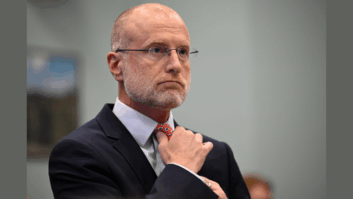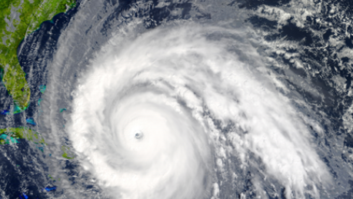Former members of the Broadcasting Board of Governors told lawmakers today there needs to be one, full-time person in charge of U.S. overseas broadcasting, but beyond that, there appears to be little agreement on what to do with what is now a part-time, depleted board.
The BBG is the federal entity with oversight responsibilities for broadcasting activities of Voice of America, Radio Free Europe/Radio Liberty, Radio Free Asia, Radio/TV Martí and the Middle East Broadcast Networks, which includes Radio Sawa and Alhurrah TV.
House Foreign Affairs Committee Chairman Ed Royce, R-Calif., called the hearing because two government reports have concluded the part-time board is “plagued by infighting” and “dysfunctional.” When she was Secretary of State, Hillary Clinton testified before the committee that the BBG is “practically defunct in terms of its capability to tell a message around the world.” Royce scheduled the hearing to see what can be done about managing America’s overseas broadcasters like VOA, Radio Free Liberty, and Radio and TV Martí.
Governments around the world are stepping up their efforts to suppress their people, and there’s an information war underway, Royce noted. “Our goal here is to figure out how to do more.”
Former BBG Board Chair James Glassman, also founding executive director of the George W. Bush Institute, refuted Clinton’s “defunct” comment, saying the BBG’s mission is confused and Congress needs to resolve that by law. “It’s unfair to call BBG dysfunctional when Congress is not clear about what it wants the BBG to do.”
Glassman suggests making BBG a part of U.S. foreign policy efforts and putting it back under the State Department.
Enders Wimbush, former BBG governor and now executive director for strategy & development for the National Bureau of Asian Research, says the broadcasters the BBG oversees are a combination of federal agencies and nonprofits, and that combo “cannot be made to work.” It’s has no real leadership and its powers are functionary, he added.
Wimbush doesn’t supporting putting BBG under the State Department and suggested that lawmakers start over and create a new organization. However the entity is structured, Wimbush suggests putting one manager in charge and possibly defederalizing VOA and the Office of Cuba Broadcasting.
Another former governor of the BBG Board, Jeff Hirschberg, is now chairman of the Northeast Maglev, which markets and deploys Japan Railway Co.’s systems and technology to international markets. He said the board worked fine for the 8.5 years he was on it, but it appears things have now changed. Hirschberg said the president and OMB supports the creation of a chief executive officer for U.S. international broadcasting. He supports the concept too, if that person “is behind a firewall.”
Hirschberg doesn’t think it’s a good idea to place BBG back under the State Department. “The best thing the [BBG] has is credibility,” implying it wouldn’t necessarily have that under State.
To save federal dollars and efficiently target its resources, the witnesses and lawmakers discussed possibly eliminating some duplicative languages between all the broadcast services and/or cutting duplicative back office functions for each of the broadcasters.
The hearing adjourned with no discussion of the next step.







